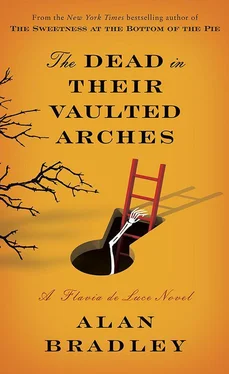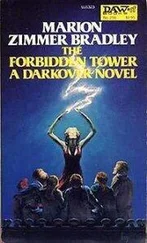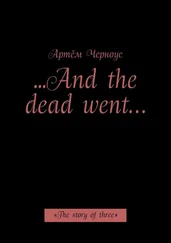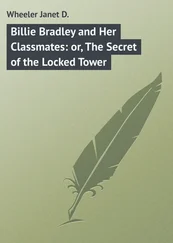“He was tall,” I said. “Very tall. He was wearing a heavy coat.”
“Thank you, Flavia,” Father said, drawing himself up, pulling himself visibly together as if he were an aged war-horse hearing the bugle call to battle.
“And now if you will excuse me,” he said, “I am freeing you from your vigil. You must go to bed now. We all of us have much to do tomorrow.”
I was dismissed.
There was no point in asking Father the meaning of the message. I would have to work it out for myself.
And I knew exactly where to begin.
The library door was shut, as I knew it would be.
I gave three long scratches at the panel with what was left of my bitten fingernails, followed by a pause, then three short, and three long again: the signal for a brief truce that Daffy and I had privately agreed upon in happier days.
Even though we were not presently at war, it was best to go warily. If there was one thing that infuriated Daffy, it was being what she called “a barger.”
A barger was one who burst suddenly into a room without so much as a “kiss-me-quick-and-mind-the-marmalade”; an invader of privacy; an insensitive clot; a thoughtless blockhead.
And I’ll admit that at one time or another, I had been one or more of these, sometimes by accident and other times not.
“Come,” Daffy called, just when I was about to give it up.
I opened the door with exaggerated care and stepped into the library. At first I couldn’t see her. She was not draped across her usual armchair, nor was she sitting by the fireplace.
Bleak House had been returned to the bookcase, and Paradise Lost was now turned turtle on the table.
When I located my sister at last, I saw that she was standing at a window, staring out into the darkness.
I waited, to allow her the first word, but she said nothing.
“Father sent me to bed,” I said. “He’s let me off my vigil early. Some men from the Home Office have taken charge.”
“They’re everywhere,” Daffy said. “Mrs. Mullet says they’ve booked every last cranny at the Thirteen Drakes.”
“Better than sleeping at Buckshaw,” I said, meaning it as a bit of a joke.
Daffy snorted. “We’re already bursting at the seams with unwelcome bodies.”
It seemed an odd thing to say, and for an instant, I was on the verge of asking if she included Harriet in that remark, but I restrained myself.
“What with Lena la-di-da de Luce and that brat of hers, plus your precious Mr. Tallis—”
“He’s not mine,” I protested. “I hardly know the man.”
“And your precious Adam Sowerby—”
Adam Sowerby! I could scarcely believe my ears! I had met Adam, who claimed to be a flora-archaeologist and inquiry agent, during a recent murder investigation in which I had been able to point the police in the proper direction. Even after I had solved the case, and he had more or less declared us partners in investigation, Adam had refused to tell me whom he was working for.
“What’s Adam Sowerby got to do with it?” I asked.
“He’s here,” Daffy replied. “Drove down from London. Arrived a couple of hours ago. Dogger’s put him in one of the rooms in the Northwest Territories, with the rest of them.”
The Northwest Territories was our playful name for that vast and desolate expanse of unused bedrooms whose few remaining sticks of furniture were kept draped with dusty sheets, awaiting some distant and unlikely day when Buckshaw might be restored to its former fortunes—unlike the abandoned and decaying east wing in which, by choice, I worked and slept.
“No room at the inn, and so forth,” Daffy said. “He and Father are old friends, remember? So I suppose that makes it all right for him to be a barger.”
Her bitterness surprised me.
“Father probably needs old friends right now,” I said.
“Father needs a good shaking!” she exclaimed, and as she turned abruptly away from the window, I could see the tears in her eyes.
I was suddenly as tired as if I had trudged barefoot across the Sahara desert. It had been a brutally long day.
My parched mind was shocked to hear my mouth uttering words I never thought would cross my lips: “Chin up, Daff. We’ll come through all this. I promise.”
NINETEEN
I SLEPT THE SLEEP of the damned, tossing and turning as if I were lying in a bed of smoldering coals.
Whenever I did manage to doze off, my mind was filled with tattered dreams: Dogger, standing atop a hill, his white hair and his gardener’s apron flying and flapping in a wicked wind; Feely and Daffy as little children, watching a Punch and Judy show in which all the puppets—except the Hangman—had blank, formless faces; Harriet floating on an iceberg, paddling furiously with her hands to escape an Arctic tidal wave.
I jerked awake to find myself sitting bolt upright, a strangled cry in my throat. My mouth tasted as if a farmer had stored turnips in it while I slept.
I looked round in panic, for a moment not knowing where I was.
It was that hour of the very early morning when all the world has begun to float to the surface of sleep, but has not yet really come awake. I cupped my hands behind my ears and listened for all I was worth. The house was in perfect stillness.
As I swung my feet out of the warm bed and onto the cold floorboards, my brain came instantly up to full throttle.
The will! Harriet’s will!
I had shoved it into the coal scuttle and put it out of my mind.
I had to retrieve it—and there wasn’t a moment to lose!
I was dressed in a flash and creeping as stealthily as a cat burglar towards the west wing. Dogger, who had difficulty sleeping, would soon be up and about. Not that I wanted to hide anything from him—no, far from it.
What I did want to do was to shield him from blame. There are a few instances in life where, in spite of everything, one has to swallow one’s heart and go it alone, and this was one of them.
I had left the torch in Harriet’s boudoir and would have to rely on the weird half-light that was coming in through the windows at the end of the hall. Sunrise, I judged, would not be for another three quarters of an hour.
Soundlessly I crept along the passageway, giving praise at every silent step for the invention of carpets. The soles of my bare feet could feel the grit left behind by yesterday’s parade of mourners, and I made a mental note to get out the carpet sweeper before breakfast and give the rug a jolly good cleaning. It was the least I could do.
At the entrance to Harriet’s boudoir, I put my ear to the door and turned up the sensitivity.
Not a sound.
I put my hand on the knob and—nothing.
It didn’t budge.
The door was locked, and the keys were inside.
For a brief, crazy moment I thought of fetching a ladder and scaling the outer wall, but I remembered that every one of the boudoir’s windows was firmly shut and locked.
The only other way into the room was through Father’s bedroom. I would need to slip in without knocking, tiptoe to the door which connected to Harriet’s boudoir, then enter and leave without a sound.
I retraced my steps in perfect silence. At Father’s door, I inhaled as much air as my lungs would hold.
I turned the knob and the door opened.
I stepped inside and began my long trek across the room.
As my eyes became accustomed to the lesser darkness, a lighter patch in the corner showed that Father’s pillows were untouched—his bed was empty.
I froze in my tracks and let my eyes move slowly round the room.
He was nowhere to be seen.
Had he gone to his study?
This was, after all, the morning of Harriet’s funeral. Perhaps he hadn’t slept and had gone downstairs to console himself among his collection of postage stamps, which to him, I suppose, seemed all that he had left.
Читать дальше












